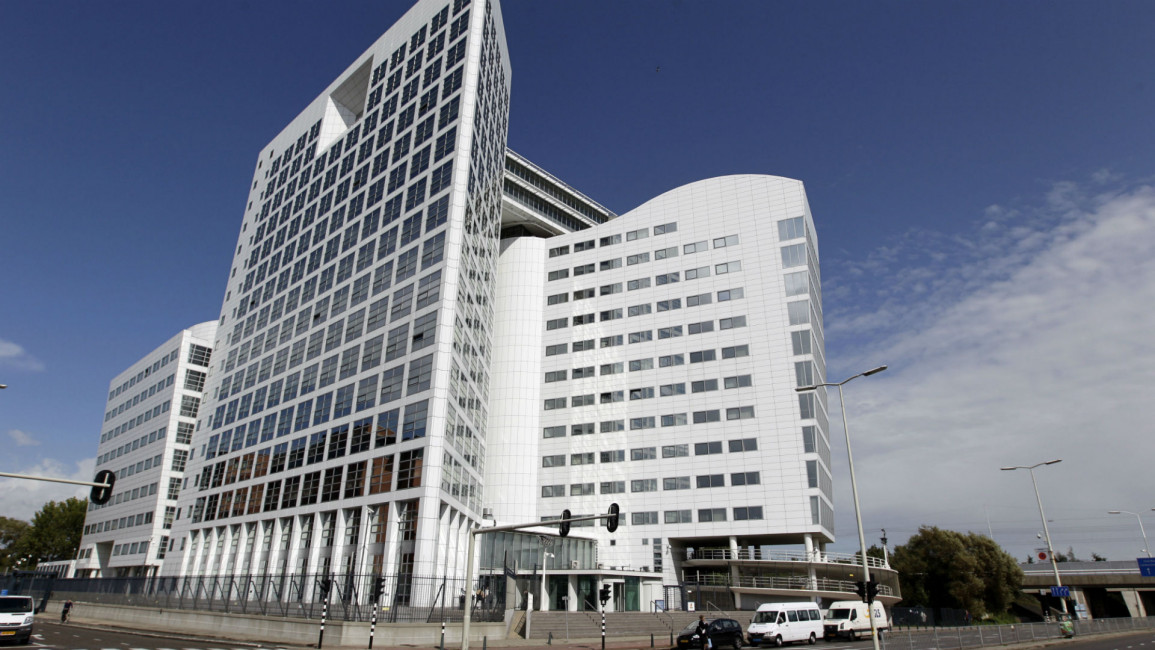Syrian refugees launch war crimes case against Assad at ICC
A group of Syrian refugees submitted evidence to the International Criminal Court (ICC) in The Hague on Thursday, in a bid to prosecute President Bashar al-Assad for crimes against humanity.
Twenty-eight Syrian refugees, currently residing in camps in Jordan, represented by London-based lawyers, have submitted evidence of bombings, shootings, detention, torture, abuse and mass killings by regime forces to the ICC, according to The Guardian.
The move to file evidence against the Syrian regime was led by Rodney Dixon QC, of London's Temple Garden Chambers, with the assistance of another London-based firm Stoke White.
"The ICC exists precisely to bring justice to the victims of these most brutal international crimes. The devastating war in Syria has been going on for almost nine years now and no one has yet been held accountable for the hundreds of thousands of violations against civilians," Dixon said.
Syria is not a signatory of the ICC, which prevented the legal body from taking action on filed evidence. But last year the court opened an investigation into alleged crimes committed by military leaders of Myanmar against the country's Muslim minority. They did this through Bangladesh, a destination of many of the affected Rohingya refugees, which is party to the Rome Statute established by the ICC.
Lawyers are hoping this precedent will extend to the case of Syria, and that Jordan's signatory to the ICC will force the court to finally act on allegations.
"This case represents a genuine breakthrough for the Syrian victims," said Dixon. "There is a jurisdictional gateway that has opened up finally for the ICC prosecutor to investigate the perpetrators who are most responsible."
One of the refugees, who didn't want to be identified, said: "The ICC must do something about this. We have suffered for too long."
Her nephew was shot at by regime forces and two of her family members were kidnapped, while her work with rape victims also singled her out in Syria.
"My volunteer work made me a target for the regime," she said.
She fled to Jordan after her eldest son refused to join regime forces and was subsequently beat up.
Her statement provides a snapshot of the evidence brought against Assad.
Crimes against humanity, such as the Hama massacre, have been recorded from when Hafez al-Assad, Bashar al-Assad's father, was in power. Huge human rights abuses have been widely reported since the outbreak of the Syria war in 2011, when regime forces fired on protesters.
In a 2016 report, UN investigators found that the scale of deaths in regime prisons indicated Assad could be responsible for "extermination as a crime against humanity".
In the same year, the Syrian Observatory for Human Rights, a monitoring group, said that at least 60,000 people had died in Syrian regime jails during the conflict.
"These crimes should not go unpunished. Victims and their families have the right to truth, reparation, and justice. Initiatives such as this one offers an innovative approach to ensuring accountability and if successful, it will open up a clear avenue of justice for the Syrians who were so brutally driven out of their homes," said Kristyan Benedict, Amnesty International UK’s Crisis Campaigns Manager
The UN Security Council debated a resolution to refer the Syrian regime to the ICC in 2014 and although 13 members voted in favour, Russia and China vetoed the resolution.
A spokesperson for the ICC confirmed receiving the materials and has said it will be analysed in accordance with the Rome Statute.


![President Pezeshkian has denounced Israel's attacks on Lebanon [Getty]](/sites/default/files/styles/image_684x385/public/2173482924.jpeg?h=a5f2f23a&itok=q3evVtko)



 Follow the Middle East's top stories in English at The New Arab on Google News
Follow the Middle East's top stories in English at The New Arab on Google News


